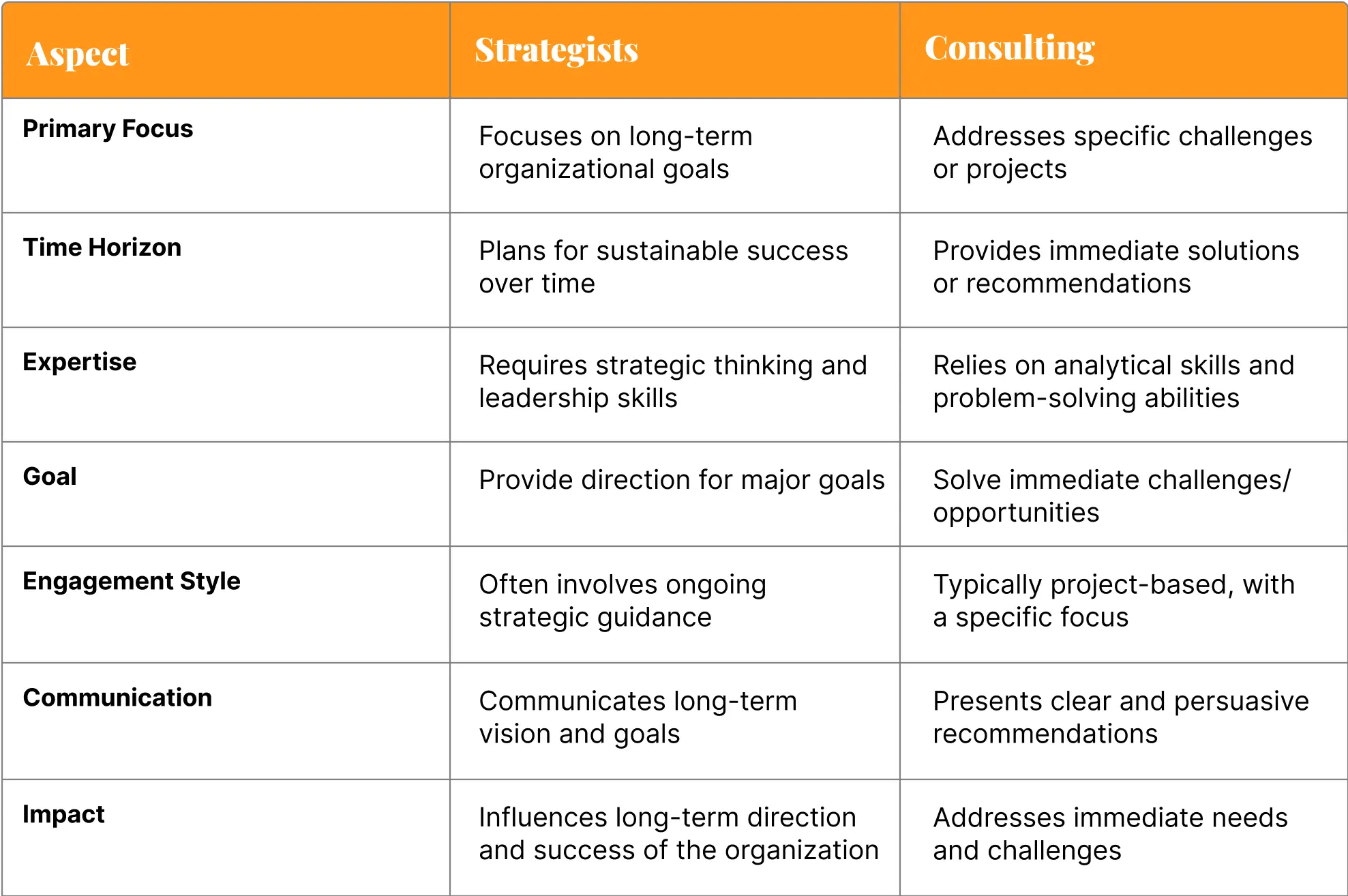Before hiring a business strategist vs a consultant, an organization should first understand its company’s scope and objectives. Below are some indicators that it’s time to consider seeking external help.
– When to hire a Strategist
-
Transitioning into a new phase
Your organization can benefit from having a strategist who understands how to negotiate changes, such as restructuring or entering new markets, as well as new growth prospects and transformations.
Organizations periodically become aware that their firm is not growing or their clientele is declining. At this stage, they need to hire a strategist to help them develop new ideas and approaches to keep their business afloat.
If an organization loses direction or is not aware of how to attain major goals, a strategic player is an advisor for this. In this case, a strategic player can help you to clarify your vision and then to create a strategic plan that attains it.
Creation of strategies aimed at increasing profitability and business establishments, a growth strategist can assist you with developing growth strategies and identifying growth opportunities.
When an organization is dealing with certain business problems like decline of sales, operational inefficiencies or low morale of the employees, a professional in that area that has witnessed the problems before can help you solve them.
– When to hire a Consultant
If your lack of expertise in business-critical areas such as technology, marketing, or finance means you need a qualified consultant, they can provide you with the special knowledge needed to resolve these issues.
During the course, the consultant can be very beneficial if you find defects in your business operations, such as excessive labor costs, low productivity, or low customer satisfaction. The consultant can identify these issues and provide necessary steps to boost efficiency.
If an organization is trying to design a new business strategy or looking towards the future and planning, an expert consultant can provide those crucial insights and assist you through the creation of an exceptional strategic plan to realize your objectives.
If an organization is experiencing a particular challenge like declining sales, market changes, or organizational issues, consulting may give you the tools to analyze the issue and also find alternative solutions to the problem.
A consultant would be an excellent choice of expert to handle the change process and assist you in doing it successfully if your firm is undergoing significant change, such as a merger, reorganization, or adoption of new technology.

